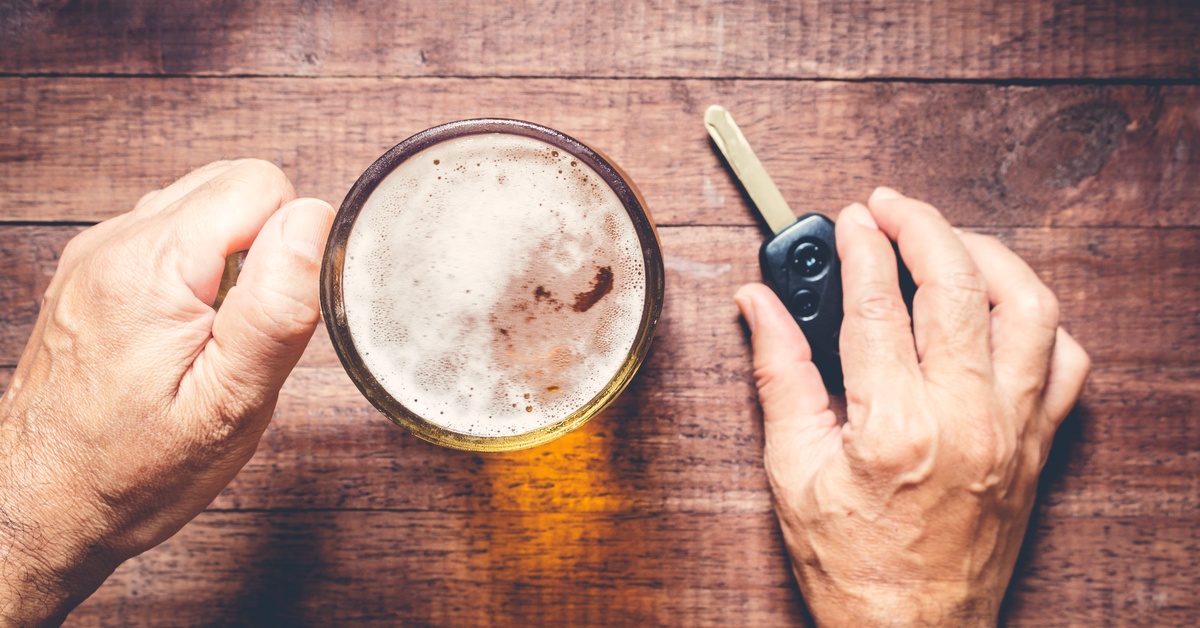Overview of FR-44 for DUI and DWI Offenders

Driving after a DUI or DWI conviction comes with serious consequences—especially when it comes to insurance. You may need to file an FR-44 to reinstate your license. This overview of FR-44 for DUI and DWI offenders breaks down what it is, why it’s required, and how it differs from an SR-22. Since FR-44 comes with higher liability limits and costs, understanding the rules can help you make informed, cost-effective decisions.
What Is an FR44?
An FR-44 is a certificate that your insurer files with the state to prove you carry the required liability coverage after a DUI or DWI conviction. It serves as proof of financial responsibility and is mandatory before you can reinstate your license.
Unlike other filings, FR-44 applies specifically to alcohol-related offenses and requires higher coverage limits. The DMV (Department of Motor Vehicles) uses it to monitor your policy and gets notified immediately if your coverage lapses or is canceled.
Which States Require FR-44?
Currently, only Virginia and Florida mandate FR-44 certificates for DUI and DWI offenders. These states implemented FR-44 requirements as more stringent alternatives to SR-22 certificates, specifically targeting alcohol-related driving offenses with enhanced coverage requirements.
Virginia requires FR-44 filing for drivers convicted of DUIs or DWIs along with certain other alcohol-related traffic violations. The state mandates minimum liability coverage of $60,000 per person for bodily injury; $120,000 per accident for bodily injury; and $40,000 for property damage. These limits significantly exceed Virginia’s standard minimum insurance requirements.
Florida implemented similar FR-44 requirements for DUI offenders, establishing even higher minimum coverage limits. The state requires $100,000 per person for bodily injury; $300,000 per accident for bodily injury; and $50,000 for property damage coverage. These elevated requirements reflect Florida’s commitment to ensuring adequate financial protection following serious driving violations.
How FR-44 Works After a DUI or DWI
The FR-44 process begins when a court or DMV orders the filing following a DUI or DWI conviction. This order typically accompanies other penalties such as license suspension, fines, or mandatory alcohol education programs. You cannot regain your driving privileges until you secure proper FR-44 coverage and complete all the other required steps.
Your insurance company handles the actual FR-44 filing process by submitting the certificate directly to your state’s DMV. This electronic filing system creates an immediate record of your coverage and establishes the monitoring period for your policy. The insurer must maintain this filing throughout your entire FR-44 period, which typically spans three years from the date of filing.
Coverage lapses trigger automatic notifications to the DMV, resulting in immediate license suspension. This strict monitoring system ensures continuous coverage and prevents drivers from obtaining cheaper, non-FR-44 policies after reinstatement. The system protects other drivers while encouraging responsible behavior from high-risk drivers.
FR-44 vs. SR-22: Key Differences
FR-44 and SR-22 both prove financial responsibility, but they apply to different situations and carry different requirements.
Purpose and Offenses
SR-22 filings apply to a wide range of violations, including reckless driving, driving without insurance, and at-fault accidents. FR-44, on the other hand, is specifically for drivers convicted of DUIs or DWIs.
Coverage Requirements
The biggest difference between SR-22 and FR-44 lies in the required liability limit for each. SR-22 typically meets your state’s minimum insurance requirements. FR-44 requires much higher coverage, reflecting the serious nature of alcohol-related offenses.
Where Each Applies
SR-22 is used in most states across the US. FR-44, however, applies only in Florida and Virginia. If you move between states, your filing requirements may change.
Cost of FR-44 Insurance
FR-44 insurance carries significantly higher costs than standard auto insurance policies due to multiple factors that increase your risk profile. Insurance companies view DUI and DWI offenders as high-risk drivers who present a greater likelihood of future claims and losses. This classification results in elevated premiums that can persist for several years.
The higher liability limits required by FR-44 certificates directly affect your insurance costs. Increased coverage limits mean higher potential payouts for insurance companies, which translates to higher premiums for policyholders. These elevated limits often double or triple the cost of basic liability coverage.
Your driving record, age, location, and credit score influence FR-44 insurance costs beyond the basic high-risk classification. Younger male drivers often face the highest premiums due to statistical accident rates in this demographic. Urban locations with higher traffic density and accident rates also increase costs compared to rural areas.
How To Get FR-44 Insurance
Obtaining FR-44 insurance requires a systematic approach that begins with identifying insurance companies that provide coverage for high-risk drivers. Not all insurers offer FR-44 policies, so you’ll need to focus on companies that specialize in this type of coverage or that maintain departments dedicated to high-risk drivers.
Contact potential insurers directly to request an FR-44 filing along with your liability coverage quote. Provide complete information about your DUI or DWI conviction, including dates, court outcomes, and any other relevant details. Accurate information ensures proper coverage and prevents delays in the filing process.
Shopping for FR-44 insurance quotes from multiple companies helps you find the most competitive rates available. Premium variations between insurers can be substantial, making comparison shopping essential for managing your insurance costs. Working with insurance brokers who specialize in high-risk coverage can streamline this process and identify options you might otherwise overlook.
How Long Do You Need FR-44?
Most states require FR-44 coverage for three years from the initial filing date, though specific requirements may vary based on your conviction details and state regulations. This period begins when your insurance company files the FR-44 certificate with the DMV, not when you purchase the policy.
Maintaining continuous coverage throughout the entire FR-44 period remains crucial for keeping your driving privileges. Any lapse in coverage, even for a single day, triggers automatic DMV notification and immediate license suspension. You’ll need to restart the entire FR-44 filing period if your coverage lapses, extending your high-risk insurance requirements.
The FR-44 period ends automatically when you complete the required time frame without coverage interruptions. Your insurance company notifies the state when the filing period concludes, though you should verify this completion with your DMV to ensure proper record updates.
What Happens If You Cancel or Let Your Policy Lapse?
Insurance companies must notify the DMV within days of coverage termination, triggering automatic license suspension regardless of the reason for cancelation.
Reinstating your license after a coverage lapse requires securing new FR-44 coverage and paying additional reinstatement fees to the DMV. The state could also restart the entire FR-44 filing period, extending your high-risk insurance requirements beyond the original three-year time frame.
The financial implications of coverage lapses extend beyond reinstatement fees and extended filing periods. Finding new FR-44 coverage after a policy cancelation often proves more difficult and expensive, as insurers view policy lapses as additional risk factors that warrant higher premiums.
Moving Forward With FR-44 Requirements
This overview of FR-44 for DUI and DWI offenders shows that while the process adds cost and complexity, smart planning makes it manageable. Knowing your state’s requirements helps you choose the right coverage and budget for higher premiums.
FR-44 rules exist to promote safety and to ensure that drivers carry adequate protection. By maintaining continuous coverage and driving responsibly, you can rebuild your record and eventually return to standard insurance rates.



Recent Comments